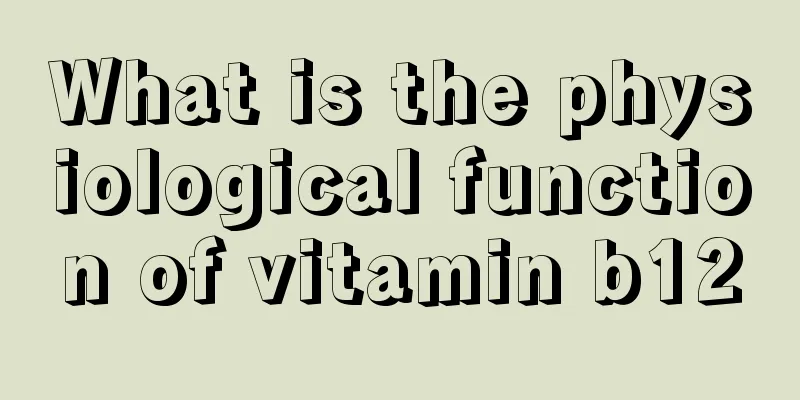What is the physiological function of vitamin b12

|
Vitamin B12 has many physiological functions. It can promote the biosynthesis of protein. If infants are deficient in it, it will affect their growth and development. Therefore, we must pay attention to correct supplementation to promote the development and maturation of red blood cells and eliminate irritability. 1. As a cofactor of methyltransferase, it participates in the synthesis of methionine, thymine, etc., such as converting methyltetrahydrofolate into tetrahydrofolate and transferring the methyl group to the methyl acceptor (such as homocysteine), making the methyl acceptor become a methyl derivative (such as methionine, i.e. methylhomocysteine). Therefore, vitamin B12 can promote the biosynthesis of protein, and its deficiency will affect the growth and development of infants and young children. 2. Protect the transfer and storage of folic acid within cells. When vitamin B12 is deficient, the folate content in human red blood cells is low and the folate storage in the liver is reduced. This may be related to the difficulty in transferring methyl groups from homocysteine to methionine caused by vitamin B12 deficiency. The methyl groups accumulate in the cells, damaging the storage of tetrahydrofolate in the cells, because tetrahydrofolate has a strong tendency to combine with methyl groups to form methyltetrahydrofolate, which synthesizes polyglutamate. 3. Main functions 1. Promote methyl transfer 2. Promote the development and maturation of red blood cells, keep the body's hematopoietic function in a normal state, prevent pernicious anemia, and maintain the health of the nervous system 3. Existing in the form of coenzyme, it can increase the utilization of folic acid and promote the metabolism of carbohydrates, fats and proteins 4. It has the function of activating amino acids and promoting the biosynthesis of nucleic acids and proteins. It plays an important role in the growth and development of infants and young children. 5. Metabolize fatty acids so that fats, carbohydrates, and proteins can be properly used by the body 6. Eliminate restlessness, concentrate attention, enhance memory and sense of balance 7. It is an indispensable vitamin for the healthy function of the nervous system and participates in the formation of a lipoprotein in the nervous tissue. |
<<: What are the effects, functions and methods of consumption of red peony root?
>>: Symptoms of herpes zoster, early detection and early treatment
Recommend
Is colon cancer liver metastasis curable?
Another reason why cancer is so scary is that can...
The harm of drinking hot water from a plastic cup
When buying a cup to drink water, people usually ...
How can patients with bile duct cancer reduce the recurrence rate
Cholangiocarcinoma is a disease with a relatively...
There is a strange smell on both sides of the nose
It is very common to have odor on both sides of t...
Will staying up late make you fat
Being fat is a common topic nowadays. Many people...
Isolation measures for multi-drug resistant bacteria
In the hospital, we can smell the smell of disinf...
Can loofah and honey be eaten together?
Luffa and honey are things we often eat. Luffa an...
Itchy skin with red spots
If your skin is itchy and has red spots, this is ...
Does grapefruit peel absorb formaldehyde?
Pomelo is a fruit we are very familiar with. It i...
The efficacy and function of winter jujube
Many people prefer to eat jujubes, especially in ...
What are the Huangshan teas
Tea culture has a long history in China, and ever...
How long can crabs be kept in the refrigerator?
In autumn, crabs start to be on the market. Crabs...
Did you know about these cranial nerve spasms?
Cerebral nerve spasm is a very common disease, wh...
What harm does liver cancer do to the body
Primary liver cancer is one of the most common ma...
How to clean oil stains on clothes
When eating, it is inevitable that food will acci...









